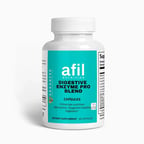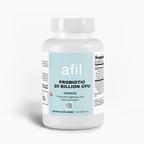Cornish Hen
Cornish hen intolerance may arise from protein differences, histamine content, or its fat composition. Avoid it for 8 weeks, explore gut-supportive supplements, and retest to check tolerance. Substitute with chicken or turkey if tolerated.
🐔 What is Cornish Hen?
Cornish hen, also known as Cornish game hen, is a small, tender breed of chicken often served whole. Despite its name, it’s not a game bird but rather a young chicken, prized for its delicate flavor and texture.
🤔 Why Do I Have an Intolerance to Cornish Hen and Its Components?
You may have an intolerance to Cornish hen due to specific components:
-
Proteins:
- Cornish hen contains unique muscle proteins and enzymes due to its young age. These proteins may trigger your immune system or digestive discomfort.
- The actin and myosin proteins, common in poultry, might not be fully tolerated by your digestive system in this form.
-
Histamines:
- Cornish hens, particularly when not fresh, can have higher histamine levels. Histamines can trigger inflammation, hives, or digestive issues in sensitive individuals.
-
Fat Content:
- Cornish hen has a different fat composition than larger birds, with higher fat-to-meat ratios. This can slow digestion and exacerbate symptoms.
-
Additives in Processing:
- Many Cornish hens are injected with saline or flavor solutions, which can contain allergens like soy or preservatives that might cause a reaction.
-
Feed Residue:
- Depending on farming practices, the feed given to Cornish hens might leave trace allergens (e.g., corn, soy) in the meat.
🛠️ What Can I Do About It?
- Avoid Cornish hen for at least 8 weeks to reduce exposure and allow your body to reset.
- After 8 weeks, retest your sensitivity to evaluate any improvements.
- Choose plain, minimally processed poultry like chicken or turkey if tolerated.
- Opt for organic or free-range poultry to avoid added chemicals or hormones.
💊 Which Supplements Can Help?
To support your system while managing Cornish hen intolerance, consider:
- Digestive Enzymes: Assist in breaking down proteins unique to Cornish hen.

- Probiotics: Help restore gut health and improve digestion of poultry proteins.

- Curcumin or Omega-3s: Reduce inflammation caused by reactions.

- Histamine Blockers: For histamine-sensitive individuals, supplements targeting histamine metabolism can provide relief.
🌟 Why Might I Have an Intolerance to Cornish Hen but Not Other Poultry or Chicken?
You may react to Cornish hen but tolerate other poultry or chicken due to these differences:
-
Protein Differences:
- Cornish hens, being younger, may have less developed proteins, which can differ from those in mature chicken or turkey. These slight variations may trigger a response.
- Chicken and turkey muscle proteins, such as tropomyosin, may be easier for your body to digest compared to Cornish hen proteins.
-
Histamine Levels:
- Cornish hens often contain more histamines, especially when stored or processed, compared to fresher or less processed chicken or turkey.
-
Fat Content:
- The higher fat content in Cornish hens compared to leaner poultry might affect digestion differently, leading to discomfort.
-
Preparation Differences:
- Cornish hens are often served whole and may undergo different cooking or processing techniques, introducing allergens not present in chicken or turkey cuts.
-
Feed and Farming Practices:
- Cornish hens are bred differently and fed specific diets, which might result in subtle differences in the meat’s nutrient and allergen profile compared to standard chicken or turkey.
🍽️ Popular Dishes Containing Cornish Hen
- Roasted Cornish hen
- Stuffed Cornish hen
- Glazed Cornish hen
- Spiced Cornish hen with herbs
🍽️ Alternatives (if tolerated)
- Chicken (whole or parts)
- Turkey
- Duck
- Quail
.png?width=100&height=75&name=AFIL%20Logo%20(1).png)